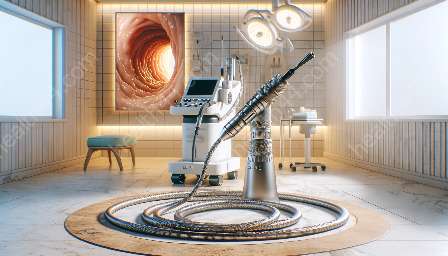Endoscopy fluid management systems play a crucial role in the success of endoscopic procedures. These systems are designed to optimize the visualization and irrigation process during endoscopy, providing a clear view of the internal organs and ensuring that the procedure is carried out smoothly and effectively. In this article, we will discuss the compatibility of endoscopy fluid management systems with endoscopes and other medical devices and equipment, their importance, and the advancements in this field.
Understanding Endoscopy Fluid Management Systems
Endoscopy fluid management systems are specifically developed to control and manage the flow of irrigation fluids during endoscopic procedures. These systems are equipped with advanced technologies that help in regulating the pressure, temperature, and flow rate of the irrigation fluid, ensuring optimal conditions for the procedure. By maintaining a clear field of vision, these systems enhance the accuracy and safety of endoscopic examinations and interventions.
Compatibility with Endoscopes
Endoscopy fluid management systems are designed to be compatible with a wide range of endoscopes, including gastrointestinal endoscopes, bronchoscopes, and arthroscopes. They are engineered to effectively integrate with these endoscopic devices, providing seamless control and monitoring of the irrigation fluid, ultimately improving the quality and outcomes of endoscopic procedures. The compatibility of these systems with endoscopes is essential for achieving precise visualization and irrigation, thereby allowing clinicians to perform intricate procedures with confidence and accuracy.
Integration with Medical Devices and Equipment
Endoscopy fluid management systems are often integrated with other medical devices and equipment, such as suction pumps, endoscopic cameras, and video processors. This integration allows for synergistic operation and coordination among different components, creating a cohesive and efficient endoscopic setup. The seamless integration of fluid management systems with other medical devices and equipment streamlines the workflow and ensures that the entire endoscopic system functions harmoniously, contributing to the overall success of the procedure.
Importance in Endoscopic Procedures
The significance of endoscopy fluid management systems cannot be overstated. These systems play a pivotal role in ensuring optimal visualization and irrigation, which are critical for the accurate diagnosis and treatment of various gastrointestinal, respiratory, and musculoskeletal conditions. They contribute to reducing the risk of complications, improving patient comfort, and enhancing the overall efficiency of endoscopic interventions. Furthermore, by maintaining a clean and clear field of view, these systems aid in the early detection of abnormalities and facilitate the precise delivery of therapeutic interventions.
Advancements in Endoscopy Fluid Management Systems
Recent advancements in endoscopy fluid management systems have further enhanced their capabilities. These advancements include the integration of intelligent monitoring and feedback systems, the development of advanced software for precise fluid control, and the incorporation of ergonomic design features for user-friendly operation. Additionally, advancements in fluid filtration and recycling technologies have contributed to the efficient and sustainable use of irrigation fluids, aligning with the principles of environmental conservation and cost-effectiveness.
In conclusion, endoscopy fluid management systems are essential components of modern endoscopic practices. Their compatibility with endoscopes, medical devices, and equipment, coupled with their vital role in optimizing visualization and irrigation, underscores their significance in the successful execution of endoscopic procedures. As technology continues to evolve, the future of endoscopy fluid management systems holds promising developments aimed at further enhancing their performance and contribution to the field of endoscopy.


